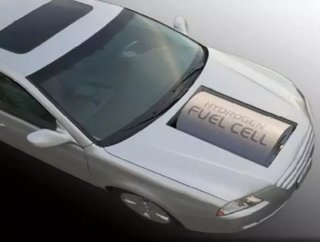Auto Giants Join Forces to Develop Fuel Cell Cars

Ford, Daimler and Renault-Nissan are joining forces to speed up the development of hydrogen powered vehicles, expecting to commercialize the technology as soon as 2017.
The cars will use hydrogen, stored in special high-pressure tanks, to generate electricity after a chemical reaction between hydrogen and oxygen occurs. The vehicles only emit water vapor and heat.
Related story: Hyundai to Reveal First Fuel-Cell Electric Car
Under the joint partnership, each company will equally invest in moving the technology forward, with plans to develop a common fuel cell system—a partnership large enough to reduce costs of the project, where most automakers have failed.
"Working together will significantly help speed this technology to market at a more affordable cost to our customers," Raj Nair, Ford's group vice president for global product development, said in a statement issued Monday. "We will all benefit from this relationship, as the resulting solution will be better than any one company working alone."
Together, the three auto giants claim to have 60 years of experience developing fuel cell cars, with test vehicles that have proven to travel over 6.2 million miles.
Meanwhile, Toyota and BMW have announced plans to work together on the development of “lithium air” batteries, with expectations to complete a vehicle by 2020.
Read More in Energy Digital's December/January Issue
DOWNLOAD THE ENERGY DIGITAL IPAD APP






